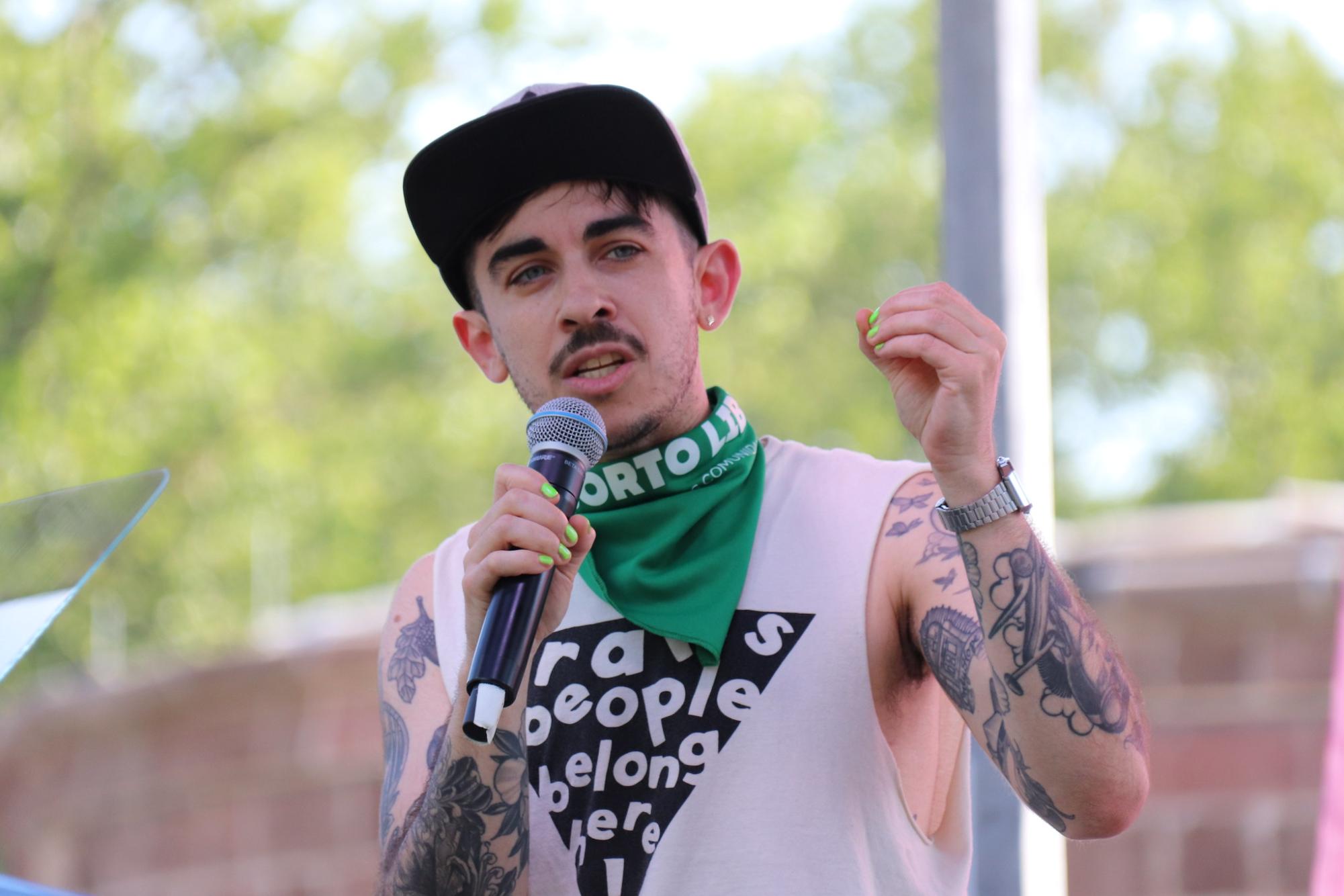Chase Strangio, 41, who graduated with a bachelor’s degree in history from Grinnell College in 2004, became the first openly transgender lawyer to argue a case before the Supreme Court on Dec. 4, 2024.
As an attorney for the American Civil Liberties Union (ACLU), Strangio is challenging Tennessee’s ban on gender-affirming care for transgender minors in United States v. Skrmetti. This case holds significant implications for both parental rights and the rights of transgender individuals, especially with the reelection of Donald Trump, whose campaign platform included pledges to roll back transgender rights.
Peter Hanson, associate professor of political science, wrote in an email to The S&B that the Supreme Court began to protect LGBTQ rights in the 1990s, starting with Romer v. Evans (1996), which held the precedent that “laws passed out of a bare desire to harm people based on their sexual orientation were unconstitutional.” Building upon these foundational rulings, cases like Obergefell v. Hodges (2015), which legalized same-sex marriage, have expanded these protections. Strangio now seeks to fortify transgender rights in a similarly transformative way through his advocacy in Skrmetti.
During the court hearing, Strangio argued that banning gender-affirming care violates the Equal Protection Clause of the 14th Amendment, which protects individuals from unfair treatment under the law.
“On its face, SB1 [Tennessee Senate Bill 1] bans medical care only when it is inconsistent with a person’s birth sex,” Strangio said, claiming that the ban is a form of sex discrimination. “An adolescent can receive medical treatment to live and identify as a boy if his birth sex is male but not female, and an adolescent can receive medical treatment to live and identify as a girl if her birth sex is female but not male.” Because of this distinction, Strangio argued the case warrants a higher legal standard, known as heightened scrutiny, which places the burden on the state of Tennessee to demonstrate how the law is narrowly tailored to achieve an important government objective.
Beyond the legal aspects of his argument, Strangio addressed the consequences of banning gender-affirming care for transgender people. Strangio said that while states usually regulate this care by informing patients of risks “to minimize them,” Tennessee imposes an overarching ban. This overrides “the very careful judgment of parents who love and care for their children and the doctors who recommend the treatment,” he said.
Strangio’s argument represents a broader perspective shared by many who have navigated gender-affirming care. “As I started transitioning, it made it much easier for me to kind of mature and get more of a head on my shoulders,” Victor Thorne `26 said, who transitioned at 16. However, Thorne said that he recognizes other individuals have different perspectives, such as others who weren’t “told how dangerous the effects of this [treatment] was.” He said, “There should be more information about potential long term health risks, potential increased mortality … I do think that things like that should be stressed more in the informed part of informed consent.”
Thorne said that he ultimately believes the decision of this case should not be deferred back to the state. “It should not be the business of the state to tell families how they’re being handled during children’s challenges and to tell doctors how they’re going to handle the challenges of their patients … some people don’t think it’s [gender-affirming care] a good idea, but I don’t think that’s a reasonable basis for just banning something entirely.”
Thorne said that these bans can inevitably cause families to uproot their lives, which, “is just really devastating to people’s sense of community,” and “a really negative thing because it takes people away from their families, support networks and communities that they may have been in for a long time.”
While awaiting the justices’ decision, which will likely be released in June, Strangio said he will “keep fighting” no matter the outcome. Anne Harris, president of the College, wrote in an email to The S&B that seeing Strangio take this role before the Supreme Court is inspiring, and shows how students can make a “palpable, powerful difference in the world.”
“It’s vital to remember that we’re both constituents and caretakers of this democracy,” Harris wrote. “What Chase is doing is powerful caretaking for generations to come.”







